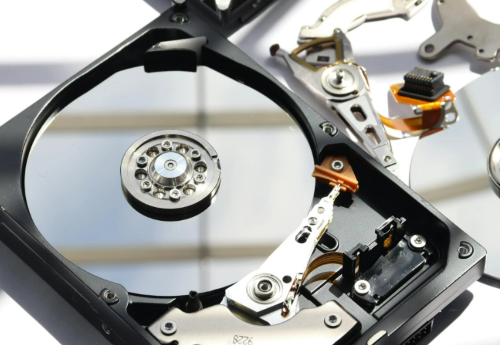An Overview of Neodymium Magnets in Modern Hard Drives
Introduction
In the world of data storage, hard disk drives (HDDs) continue to play a crucial role, offering an optimal blend of storage capacity, cost-effectiveness, and reliability. At the heart of the HDD’s sophisticated mechanical structure are neodymium magnets, which are pivotal in the functioning of these devices.

This article discusses the integral role of neodymium hard drive magnets in HDDs, examining their properties, functions, and significance in enhancing the drive’s performance.
Understanding Neodymium Magnets
Neodymium magnets, made from an alloy of neodymium, iron, and boron (NdFeB), are among the strongest types of rare earth magnets. They are renowned for their exceptional magnetic strength and are used in various applications ranging from medical devices to electric motors, and notably, in hard disk drives. Their discovery in the 1980s revolutionized many technologies, including HDDs, by allowing for smaller, more efficient designs.
The Role of Neodymium Magnets in HDDs
Hard disk drives store data on platters coated with a magnetic material, which is read or written by heads at the end of a rapidly moving actuator arm. The speed and precision with which this arm moves are critical for the overall performance of the drive. Here is how neodymium hard drive magnets contribute to this mechanism:
- Actuator Arm Control:
– Neodymium magnets are essential components of the voice coil motor (VCM) that controls the actuator arm in an HDD. The VCM functions similarly to a loudspeaker, where the hard drive magnet generates a magnetic field that interacts with the electric current in the coil. The result is a precise movement of the actuator arm, allowing the read/write heads to access the correct locations on the platters quickly and accurately.
- Spindle Motor Functionality:
– The spindle motor, which rotates the magnetic platters at high speeds (typically between 5400 to 7200 RPM), also relies on neodymium magnets. These hard drive magnets provide the necessary magnetic field that interacts with the electric coils to create torque, thus spinning the platters consistently and reliably.
Related reading: The Evolution of Hard Drive Magnetic Technology
Advantages of Neodymium Magnets in HDDs
The use of neodymium magnets in HDDs brings several advantages that are vital for data storage:
- High Magnetic Strength: Neodymium magnets produce a powerful magnetic field from a relatively small size, which is crucial for the compact design of modern HDDs.
- Speed and Efficiency: The strong magnetic fields enable faster and more precise movements of the actuator arm, reducing the time it takes to read from and write to the drive.
- Durability: Neodymium magnets maintain their magnetic properties over a long period, which contributes to the longevity and reliability of HDDs.
Challenges and Sustainability Issues
Despite their benefits, the use of neodymium hard drive magnets poses certain challenges:
- Temperature Sensitivity: Neodymium magnets can lose some of their magnetic properties at high temperatures. HDDs must therefore be designed to manage heat effectively to maintain performance and durability.
- Supply Chain and Environmental Concerns: Neodymium is a rare earth element, and its mining and processing can have significant environmental impacts. Additionally, the majority of the world’s supply of neodymium comes from China, posing supply chain risks.
Future Outlook
As the demand for storage continues to grow, so does the need for efficient and reliable hard drives. The role of neodymium magnets in the ongoing evolution of HDD technology is critical. Researchers are continually exploring ways to improve the performance of neodymium magnets, including enhancing their temperature resistance and reducing their environmental impact. Moreover, recycling initiatives aimed at recovering neodymium from old electronics are gaining momentum, helping to alleviate both environmental and supply chain concerns.
Conclusion
Neodymium magnets are indispensable in the design and function of modern hard disk drives. Their ability to provide strong, stable magnetic fields in a compact form factor significantly enhances the performance and reliability of HDDs. As technology advances, the innovative use and sustainable management of neodymium resources will remain central to the future of data storage technology.
Stanford Magnets is a reputable provider of hard drive magnets, offering a wide range of options including NdFeB (Neodymium-Iron-Boron), SmCo (Samarium Cobalt), AlNiCo (Aluminum Nickel Cobalt), and ferrite magnets. We also welcome customization requests for your specific requirements. If you’re interested in learning more about our products or wish to make an inquiry, please contact us.